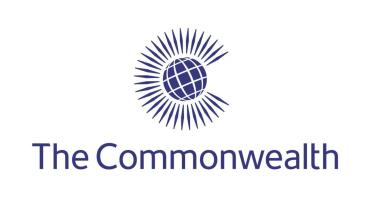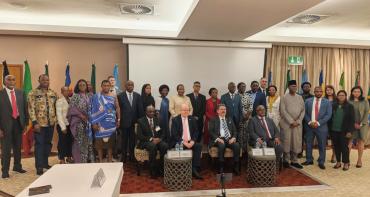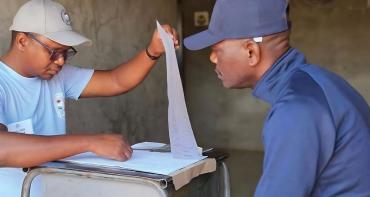The Commonwealth Observer Group, which monitored the 2016 Ghana general election, has concluded that the process was conducted in a ‘largely peaceful and vibrant manner’.

The Commonwealth Observer Group, which monitored the 2016 Ghana general election, has concluded that the process was conducted in a ‘largely peaceful and vibrant manner’.
The Group was led by the former president of South Africa, Thabo Mbeki.
“This was a closely contested election between the two leading political parties, the New Patriotic Party and the National Democratic Congress,” he wrote in his foreword. “We noted commendable local peace efforts by the National Peace Council and its partners in bringing together the Presidential candidates to sign a peace pact in which they agreed to take a definitive stand against electoral violence, impunity and injustice.”
Ghana’s general election took place on 7 December 2016. This was the seventh general election since the country’s return to multi-party democracy in 1992. Almost 16 million citizens were on the voters’ register. They had the chance to vote at almost 29 thousand polling stations dotted around the country.
President Mbeki continued, “The Group’s overall assessment is that the electoral process, as a whole, was credible, transparent and inclusive. Many of the key benchmarks for democratic elections were met. The Group has offered recommendations to address some of the shortcomings identified.”
The Group’s report concluded that, on the whole, the media played a prominent and positive role in the campaign ‘with freedoms of speech and expression respected’. But it said it observed ‘cases of inflammatory language, and biased reporting’.
“We submit our detailed findings and recommendations in the report to help further strengthen the electoral process in Ghana,” added President Mbeki. “We hope that these findings are received in the constructive spirit in which they are offered.”
The report has been sent to stakeholders in Ghana, including the government, political parties and the Electoral Commission.



